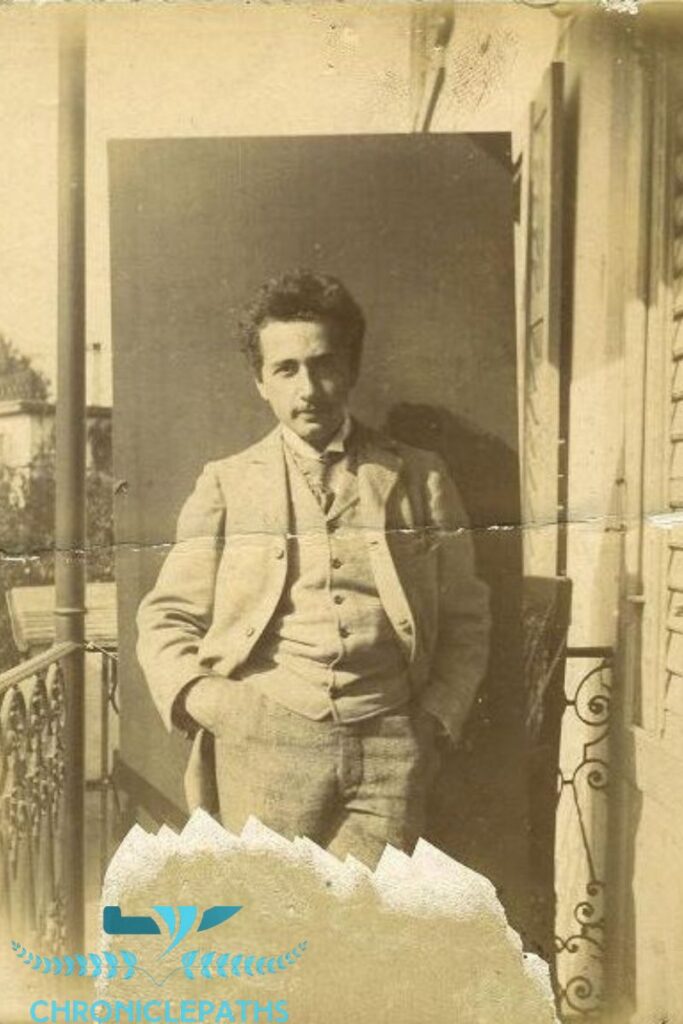Albert Einstein, widely regarded as one of the most influential physicists of all time, transformed our understanding of the universe through his groundbreaking theories. From his early struggles in school to becoming a global symbol of genius, Einstein’s life was a journey of intellectual curiosity, resilience, and remarkable contributions to science.
Early Life and Education

Albert Einstein was born on March 14, 1879, in Ulm, Germany, to Hermann and Pauline Einstein. His father was an engineer and entrepreneur, while his mother nurtured his early interest in music. Contrary to popular myths, Einstein was not a poor student. He displayed an early aptitude for mathematics and science, although he clashed with the rigid educational system of the time.
At age 15, Einstein left school without a diploma due to financial difficulties in his family, but later, he completed his education in Switzerland. He enrolled at the Swiss Federal Polytechnic in Zurich in 1896, where he studied physics and mathematics. Despite excelling in theoretical concepts, he struggled with authority and formalities, a trait that shaped his independent approach to science.
Einstein’s Early Career
After graduating in 1900, Einstein faced difficulty securing an academic position. He eventually found work at the Swiss Patent Office in Bern, where he reviewed technical designs. This seemingly mundane job allowed him to ponder profound scientific questions in his spare time.
In 1905, often referred to as his “miracle year” (annus mirabilis), Einstein published four groundbreaking papers that reshaped physics:
- Photoelectric Effect: Demonstrated that light could behave as particles (later called photons), laying the foundation for quantum theory.
- Brownian Motion: Explained the erratic motion of particles, providing evidence for the existence of atoms.
- Special Theory of Relativity: Introduced the idea that time and space are relative, famously encapsulated by the equation E=mc^2E, which describes the relationship between mass and energy.
These achievements earned him recognition within the scientific community, marking the beginning of his meteoric rise.
The Theory of General Relativity
In 1915, Einstein presented his general theory of relativity, a revolutionary concept that redefined gravity. Unlike Isaac Newton’s view of gravity as a force, Einstein proposed that massive objects distort spacetime, creating a gravitational field. This theory was confirmed during a 1919 solar eclipse, catapulting Einstein to international fame.
General relativity not only provided new insights into the cosmos but also predicted phenomena such as black holes and gravitational waves, which have been confirmed by modern science. It remains a cornerstone of contemporary astrophysics.
Nobel Prize and Later Work
Einstein was awarded the Nobel Prize in Physics in 1921, not for relativity but for his work on the photoelectric effect, which had profound implications for the emerging field of quantum mechanics. Despite his contributions to quantum theory, Einstein remained skeptical of its probabilistic nature, famously declaring, “God does not play dice with the universe.”
In the 1920s and 1930s, Einstein continued to explore unified field theory, seeking to reconcile gravity and electromagnetism within a single framework. While he did not succeed in this endeavor, his persistence inspired future generations of physicists.
Einstein’s Role in World War II and the Manhattan Project
As the rise of the Nazi regime threatened his life and the freedom of many, Einstein emigrated to the United States in 1933. He joined the Institute for Advanced Study at Princeton University, where he remained until his death.
Although a committed pacifist, Einstein played an indirect role in the development of nuclear weapons. In 1939, he co-signed a letter to President Franklin D. Roosevelt, warning that Germany might develop an atomic bomb. This letter led to the creation of the Manhattan Project. However, Einstein later expressed deep regret over the weapon’s use, dedicating his remaining years to promoting peace and disarmament.
Personal Life and Legacy
Einstein married Mileva Marić in 1903, with whom he had two sons and a daughter. Their relationship was strained by Einstein’s intense focus on his work, leading to their divorce in 1919. That same year, he married his cousin Elsa Löwenthal, who remained his companion until her death.
Despite his towering intellect, Einstein was known for his humility, wit, and compassion. He advocated for civil rights, spoke against racial injustice, and supported the establishment of the state of Israel.
Albert Einstein passed away on April 18, 1955, in Princeton, New Jersey, leaving behind a legacy that transcends science. His work continues to influence fields ranging from quantum mechanics to cosmology.
Conclusion
Albert Einstein’s genius was not confined to his scientific achievements; it also lay in his unrelenting curiosity and willingness to challenge convention. From reshaping our understanding of time and space to advocating for human rights, Einstein’s impact on science and society is immeasurable. His life serves as a testament to the power of intellect, perseverance, and the pursuit of truth.
FAQS
Contrary to popular belief, Einstein was a strong student in mathematics and physics. However, he disliked the rote learning methods of his schools.
Einstein’s major contributions include the photoelectric effect, special and general relativity, and foundational work in quantum mechanics and statistical physics.
